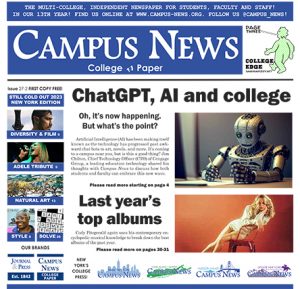The City University of New York has phased out outdated traditional remedial math and English courses that thousands of students in associate programs had taken for decades — replacing them with more equitable “corequisite” courses. Corequisite courses are credit-bearing courses that provide students with embedded academic supports to help them succeed in the course and count toward their degree requirements. They replace costly, non-credit bearing remedial courses that students had been required to pass before embarking on college-level courses. The full scaling of corequisite courses marks a milestone in CUNY’s seven-year effort to reform the way it helps many students start and succeed in their degree pursuits.

Before CUNY’s reform effort began in 2016, 78% of CUNY’s new associate-degree students were assigned to traditional remedial classes in at least one subject, most commonly math. The majority of students assigned to traditional remediation had low course completion, retention, and graduation rates — outcomes consistent with national data on traditional remedial education, including many years of evaluation by research and policy organizations such as the Community College Research Center (CCRC) at Teachers College, Columbia University. Students were required to pay tuition and use time-stamped federal and state financial aid for these remedial courses, which did not count towards their degree requirements.
As of this fall, the University has eliminated stand-alone traditional remedial courses at all 10 associate degree-granting colleges and adopted the corequisite developmental education model, supported by research and examples from across the country and within CUNY.
“Replacing the outdated remedial approach with a more effective, equitable and evidence-based system is an important advance in our ongoing mission to provide our students with educational opportunity and the support they need to succeed,” said Chancellor Félix V. Matos Rodríguez. “I am also proud that these systemic CUNY changes and reforms were spearheaded by our academic leadership and faculty, and they exemplify our steadfast commitment to transforming the CUNY system to meet the current needs of New Yorkers. The elimination of traditional remedial courses on all campuses is an important milestone on this journey.”
Under traditional remediation, students whose placement exams determined a need for more support in English or math had to complete semester-long remedial courses before they could enroll in credit-bearing courses in those subjects. This practice also disproportionately hurt underserved communities: A large majority of the students assigned to remedial courses were low-income students of color, who were prevented from taking credit-bearing courses and progressing toward their degrees.
CUNY data has found, for example, that students who placed into traditional developmental math were about half as likely as other students to complete an associate degree within three years. Although it is too soon to measure the impact of full implementation of corequisite courses at CUNY, early signs are promising: Since CUNY began corequisite adoption, the percentage of first-year associate-degree students who earned math credit in their first two semesters rose from 36% in 2016, when the transition began, to 50% in 2020.
In 2016, the Developmental Education Task Force, which CUNY created the previous year, made a series of recommendations, including the adoption of the corequisite course model that allows students to enroll directly in freshman English or math courses, while simultaneously receiving additional instruction and tutoring designed to support their success in the course. The corequisite model provides a more efficient use of both students’ time and valuable financial aid, as students enroll immediately into English and math general education courses that count towards their degree requirements.
The adoption of the corequisite model was coupled with improved assessment and placement methods, better guidance to math courses most appropriate for students’ majors and more targeted use of CUNY’s evidence-based prematriculation programs. Depending on the level of their developmental education need, students are encouraged to enroll in CUNY Start/Math Start or the University Skills Immersion Program. These supplemental programs provide intensive, tailored instruction in reading, writing and math by specially trained teachers before students begin their degree studies. They are either low cost or free and have well-documented success rates.






Facebook Comments